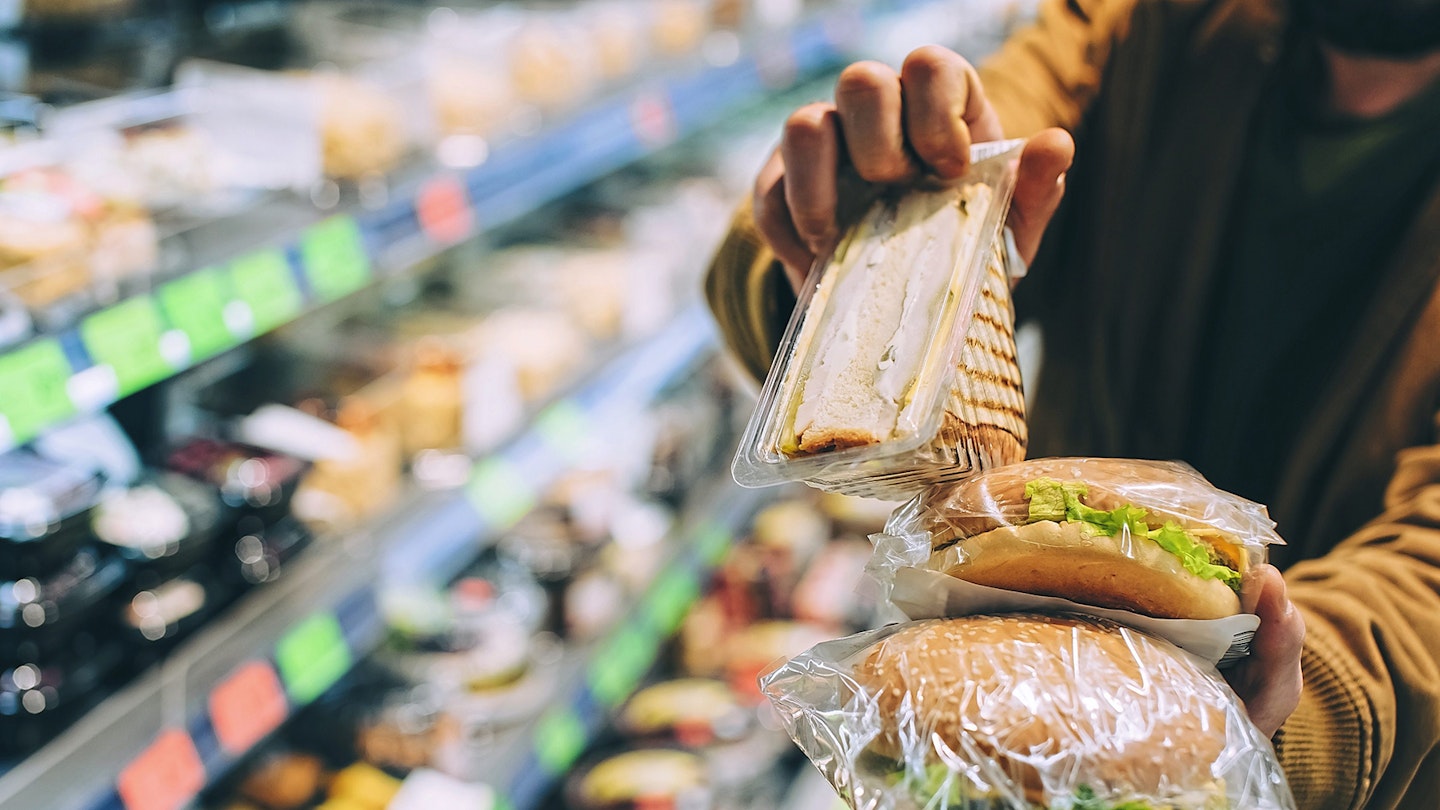They’re the backbone of many busy lunchtimes, but are they any good for us?
It’s lunchtime and you’re hungry, but there’s a snag. You’ve been so busy you haven’t had time to make any food or prepare a packed lunch.
No problem. Just pop to the shops and grab a ‘meal deal’.
For less than a fiver you can get something that will fill that aching hole in your tummy — a sandwich or pasta pot, crisps, a chocolate biscuit or fruit, and a drink.
They’re our busy-day saviours.
But are they healthy or could they be contributing to the obesity epidemic?
Eva Humphries of wholefoodwarrior.co.uk is a registered nutritionist with the British Association for Nutrition and Lifestyle Medicine.
She says: ‘Health isn’t a routine driving factor in purchasing decisions for meal deals. Convenience and perception of value are likely to be bigger variables. Having a meal deal that is set out at the front of the store takes away much of the decision-making. It’s quick, convenient and affordable.
‘There is an argument to say that, thanks to marketing, certain meal-deal options are perceived to be healthier than others.’
In fact, the Welsh government is so concerned about the content of some meal deals and multi-buy offers that it is considering restricting their sale as part of its bid to tackle obesity — a move that has sparked outrage among shoppers keen to get value for money.
Surely, they argue, if you pick fruit over crisps or a salad box over a cheese sandwich, that’s healthy? And isn’t a meal deal better for you than eating a burger or some fried chicken?
Eva is not so sure.
‘To an extent, meal deals normalise the consumption of highly-processed foods on a regular basis,’ she says. ‘We know that ultra-processed items tend to be devoid of nutrients and instead contain high levels of salt, sugar and additives.
‘This combination may lead to increased food cravings later in the day, which can be a driver for overeating and weight gain.’
The new legislation hasn’t come into effect yet in Wales, but the Welsh Retail Consortium has warned that banning meal deals could increase prices and reduce choice.
It points to the fact that many people simply don’t have time to prepare healthy meals in advance for their lunch or don’t have office kitchens where they can make healthy lunches. Meal deals are easy, quick and affordable, with some priced at just over £3 for three items.
If their availability is reduced, what is the alternative?
Eva says: ‘Making your own sandwiches or wraps is often more cost-efficient and will tick more of those nutrition boxes. Cooking a slightly larger dinner and having leftovers for lunch the next day is also a good option.
‘What lets meal deals down the most is the addition of snacks and sugary drinks. They are both easy to swerve if lunches are homemade.’
However, she adds: ‘There are many sides to this argument and, given the cost-of-living crisis, I believe any restriction on lower-cost food is an issue.
‘What meal deals really need is a restructure so they are actually nutritious rather than merely a cheap filler. Better quality food rather than a ban would be nice.’
A Welsh Government spokeswoman said: ‘We are not proposing to ban meal deals themselves but to consider whether there should be restrictions on high fat, salt and sugar products that may be part of a meal deal.’
EVA’S TIPS FOR HEALTHY HOME-MADE ‘MEAL DEALS’
-
I’m a big fan of wraps. They are easy to fill with protein and nourishing veggies. The more nutrients we can get in, the better it gets.
-
My current favourite prep-ahead lunch is a salad bowl of hummus topped with roasted veggies, puy lentils, seeds and a pesto dressing. It keeps in the fridge for three days, so one small effort caters for the majority of the working week. Plus, it’s pretty cheap to do.
-
Make a bigger dinner the night before and pop leftovers in a food container for work.
Whatever you opt for at lunch, adding a good-quality protein and healthy fats may help to keep you fuller for longer.
